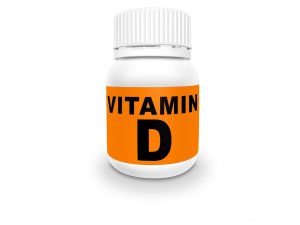
Introduction:
The supplement industry is a growing market, with a wide range of products targeted at the gym crowd; a lot of products seem to be marketed with a strong gender bias, such as mass gainer marketed towards men, and meal replacement or diet shakes promoted towards women. Manufacturers make all sorts of claims about how their product can improve your performance, so how can you find out what would actually benefit your needs and training requirements in such a confusing and crowded market? This post looks at some useful supplements for runners… regardless of their gender!
Supplements:
Glucosamine Sulphate
Studies have shown that Glucosamine can help reduce joint pain, which is beneficial to runners who may suffer from knee pain. It is not a miracle cure, and it’s important to know your own body to understand the difference between a niggle and an injury which requires a trip to the doctor.
View on Amazon.
Iron
Runners are prone to having low Iron levels due to the amount lost from sweating. Low Iron levels are linked with fatigue, which may be hindering your training performance. The recommended Iron intake for men is 10 grams a day and 15 grams for pre-menopausal women. If you believe that you are at risk of having low Iron levels, consult with your doctor before taking an Iron supplement, as high Iron levels are toxic within the body.
View on Amazon.
Vitamin D
Sunlight is the main source of Vitamin D, but with people spending less and less time outdoors, it is important to make sure that the recommended levels are still met; meeting this level is a lot easier in the summer, and some people may be required to take a supplement during the winter months. Vitamin D plays an important role in digestion, and are needed for protein synthesis. It may be worth having your levels checked periodically.
View on Amazon.
Protein Powder
Protein should be part of a balanced diet, but sometimes getting a boost from whey protein is necessary. I use whey protein as it’s cheap, low calorie and vegetarian friendly; it helps me meet my macros and helps promote recovery due to the protein content and added branch chain amino acids, which help to repair and build muscle. Whey protein is versatile and can be mixed into a protein shake with either milk, soy milk or water, but it can also be used in other recipes, such as pancakes, oatmeal or brownies. It can be a convenient way to help muscle recovery after a tough run.
View on Amazon.
Multivitamin
This only really applies if you struggle to eat a balanced diet and regularly fail to get enough vitamins and minerals through your diet. I’m vegetarian and also don’t eat fish or egg, so a multivitamin helps me to get the nutrients that I need. Consult with your doctor to determine your vitamin intake to ensure that you don’t overcompensate.
View on Amazon.
Conclusion:
As you can see, all but one item on this list are supplements which should only be taken if you lack something in your diet, or struggle to reach the recommended daily allowance within your diet. If you are training consistently and looking to push performance, a check up with a doctor may be a good idea to ensure that your vitamin levels are in the normal range to ensure that you get the most from your workout without a higher risk of injury or fatigue.
Keep a look out for a future post which will take a look at some popular pre and intra-workout supplements to help boost you through hard training sessions.



